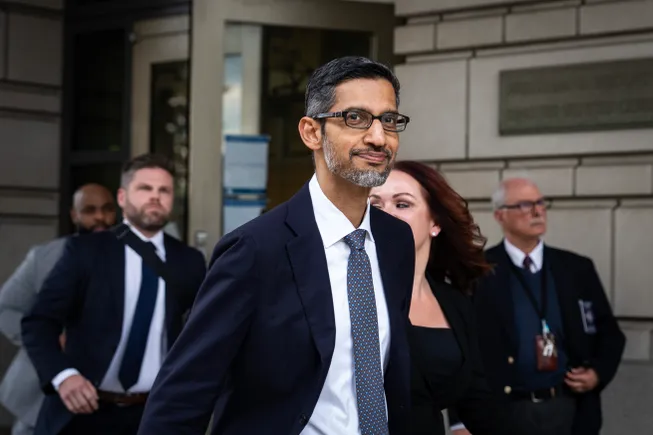Dive Brief:
- Google’s revenue derived from advertising rose 10% year over year to $65.85 billion in Q3, according to an earnings statement from parent company Alphabet.
- Search and other, the tech firm’s largest segment, was up 12% YoY to $49.39 billion, led by healthy demand from financial services and retail marketers. Video platform YouTube also recorded 12% growth for the period, reaching $8.92 billion in revenue.
- Cloud-computing services were another bright spot in a quarterly report that beat analyst expectations on key metrics. However, Google is facing a cloudy future amid a regulatory crackdown on its search and ad-tech behemoths.
Dive Insight:
Viewed in vacuum, Google had a robust Q3, topping expectations on earnings and revenue and delivering strong performance on the advertising front. Looking at the broader picture, the company has never been in a more uncertain position.
Google in August was ruled to maintain an illegal monopoly on search, a landmark case that threatens its largest and most entrenched revenue driver. Google plans to appeal the decision that could open inroads to search rivals that have long vied for a larger slice of a lucrative market.
The tech giant is facing a separate antitrust challenge from the Department of Justice related to its ad-tech network, which recently wrapped up a three-week trial. A pair of intense regulatory battles comes as Google tries to reshape its business around generative artificial intelligence (AI), a race to win in an emerging sector that has also been challenged in the courts.
Discussing the Q3 results with investors, executives were reticent to comment on ongoing litigation, but reinforced their argument that Google’s dominant stature is the result of a superior product.
“First of all, we plan to vigorously defend these cases. And some of the early proposals from the DOJ, et cetera, have been far reaching,” said CEO Sundar Pichai on the earnings call. “I think they could have unintended consequences, particularly to the dynamic tech sector and the American leadership there.”
Google also made organizational changes in Q3 that could affect its advertising strategy moving forward. In September, it appointed Nick Fox to lead Google’s search and advertising division, replacing Prabhakar Raghavan. Raghavan, a longtime Google executive, is now chief technologist at the company.
Fox lands in the top search role as Google broadens the rollout of ads in AI Overviews, a generative AI feature that condenses answers from across the web into a single window. Pichai stated that AI Overviews have seen strong engagement and user satisfaction so far. Google has also implemented more AI-powered shopping into search, which could help it capitalize on the busy holiday season.
Other Google AI tools, including its Gemini software, are being used to help advertisers with creative asset generation, media buying and measurement. A campaign from Audi that leveraged Google AI to generate video images and texts for links appearing in long-form videos increased visits to the automaker’s website by 80% and lifted sales, according to Google Chief Business Officer Philipp Schindler.











